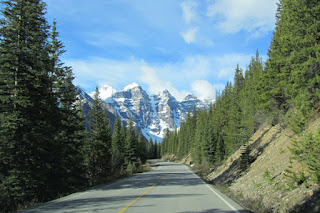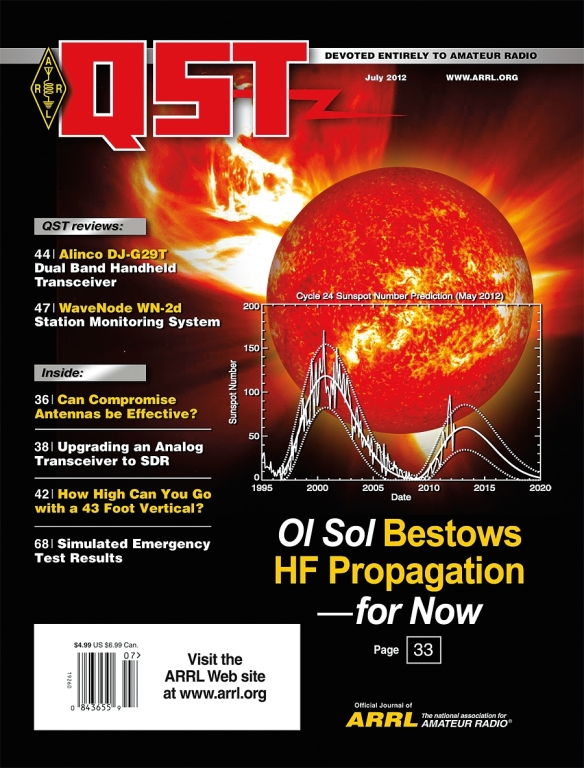Although not (yet) an ARRL member I am tempted join to get the new digital version of QST magazine. A sample of this new digital version is available from the ARRL website.
QST has been a very useful source of data going back to around 1916. I well remember thumbing through the copy in Plymouth library when attending RAE lessons at Plymouth Tech way back in 1966.
21 Jun 2012
Rigol test equipment
 |
| The Rigol Spectrum analyser at £895 plus VAT |
Labels:
rigol,
spectrum analyser
SAQ transmission on 17.2kHz on July 1st
From the SAQ website:
Transmissions on Alexanderson Day
We plan for transmissions on Alexanderson Day Sunday 1st July. If we are allowed to use the antenna we start the machine transmitter at 8.30 UTC and a message is sent at 9.00 UTC. Second start of the transmitter at 11.30 UTC and a message is sent at 12.00 UTC. The frequency is 17.2 kHz CW.QSL-reports are kindly received:QSL reports can be given via:- E-mail to: info@alexander.n.se- or fax to: +46-340-674195- or via SM bureau- or direct by mail to: Alexander - Grimeton Veteranradios Vaenner, Radiostationen, Grimeton 72, S-432 98 Grimeton, SWEDENNote: SAQ is a member of the Swedish Amateur Association (SSA) and "QSL via bureau" is OK.
Labels:
saq
20 Jun 2012
ISS Flash Project
Guido PE1NNZ has sent me this interesting link about a recent experiment with the International Space Station using optical frequencies. See http://www.cqdx.ru/ham/ham_radio/iss-flash-project/ .
Labels:
iss
Back home again and the 472kHz transverter
 |
| Icefield Parkway, Alberta |
 |
| One of the 8 black bears we encountered - this one VERY closely |
I am trying to decide on the choice of IF as I want to use an unmodified FT817. 28MHz will allow 472-479kHz to appear "in-band", but at 28MHz the start-up drift as the LO settles will still be some tens of Hertz. This hasn't proved problematic with WSPR, so guess this is my choice. At least the dial will directly read the "right" frequency e.g. 28.477kHz will correspond to 477kHz.
In view of the picture above, I am not sure what power the transverter will use bear-foot (sorry, weak joke).
Labels:
472-479khz,
630m,
transverter
18 Jun 2012
Knife Edge Refraction at VHF
Currently I am sitting in a log cabin (with a log fire) surrounded by snow capped mountain peaks wondering how 2m propagation would be from here. Sharp mountains often allow good propagation into screened valleys by refraction over the peaks sometimes with strong signals. Unfortunately I have no ham gear (apart from Echolink) to try it. Instead I am just enjoying the views. 10cm snow forecast tomorrow here, HI.
15 Jun 2012
Canadian Rockies
For the last few days I've been in the Canadian Rockies. The scenery is truly the very best I've seen (inland) anywhere on Earth. The 300km drive today from Banff to Jasper had snow capped mountains and azure blue lakes and rivers all the way. Only seen 1 HF antenna so far and that was from the Rocky Mountaineer train from Vancouver to Banff.
14 Jun 2012
Germany gets 472-479kHz
Surprisingly, news on the wires today that German amateurs have been granted early access to the new MF allocation. I wonder if OFCOM will release it early too?
9 Jun 2012
"LF Today" RSGB book on special offer
This excellent introduction to LF/MF amateur radio is available from the RSGB bookshop at just £7.99 and I can recommend it. It helped me a lot when I started and still gets referred to regularly.
CW on 136kHz
Mike G3XDV reported normal speed CW activity on 136kHz with QSOs with G3KEV and DK7FC's normal speed CW beacon. Although harder work with QRP, 136kHz is an ideal band for CW contacts. A lot of people are saddened that digital weak signal modes have rather put CW on the shelf.
Subscribe to:
Comments (Atom)


